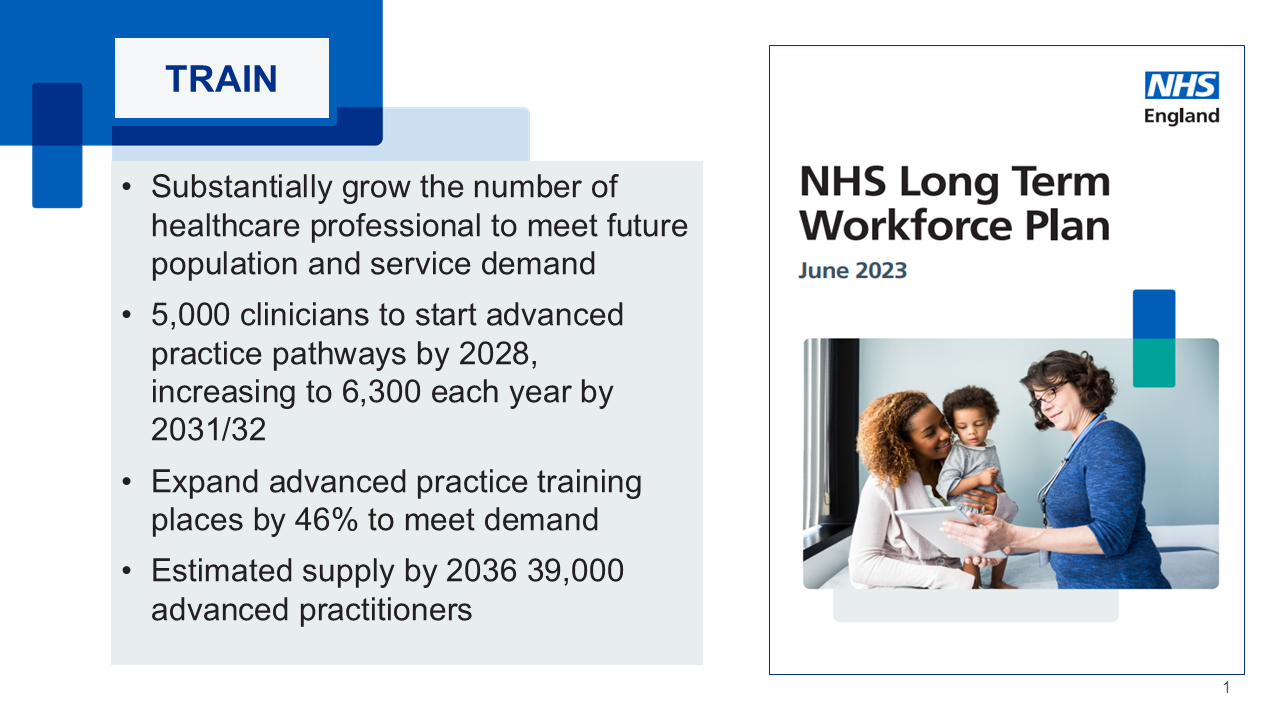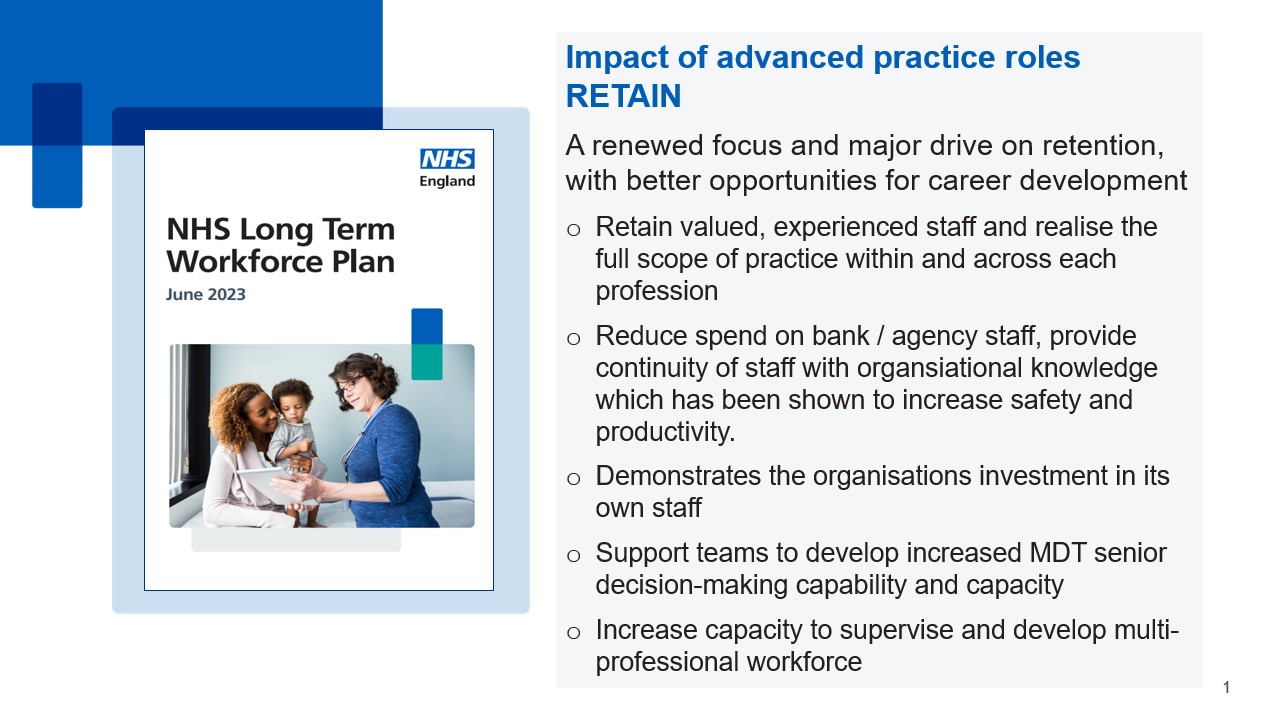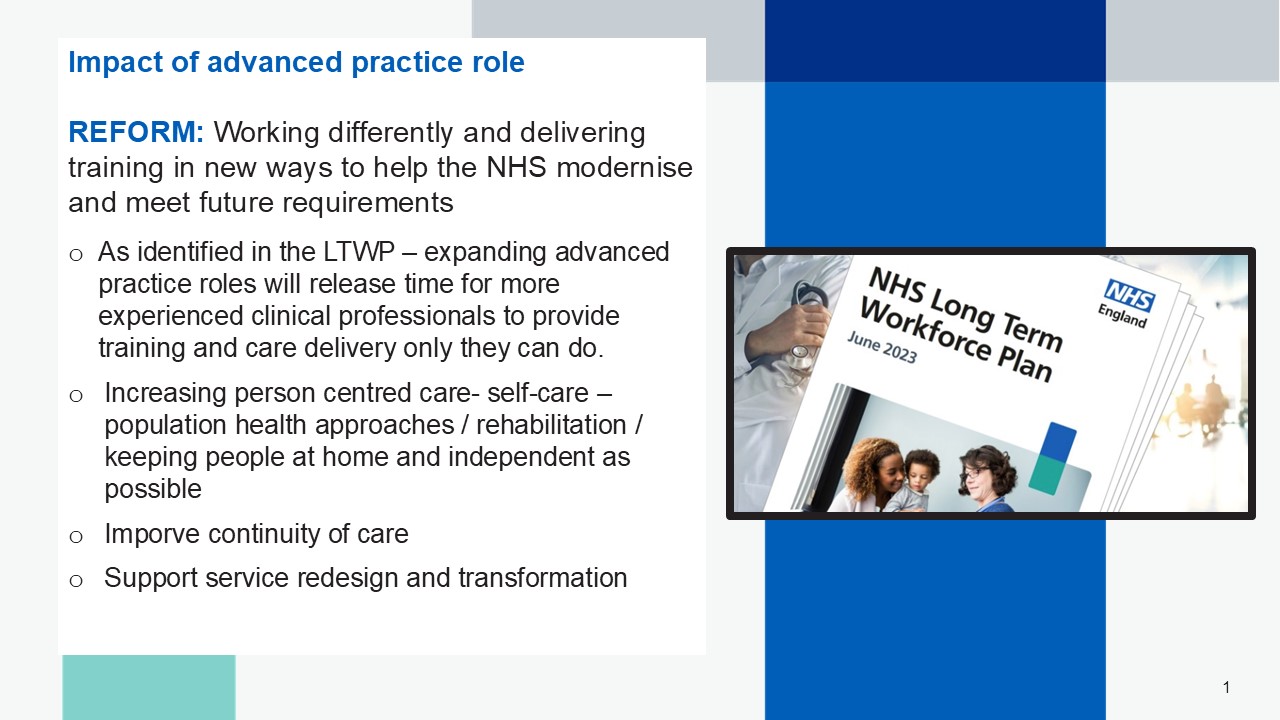East of England advanced practice strategy
The Faculty have produced an East of England advanced practice strategy (2025) for 2024/25-2026/27. The strategy outlines key priorities for the Faculty to support systems to achieve advanced practice workforce development ambitions. This strategy has been developed with input and oversight from the NHS England – East of England Advancing Roles Programme Board.
NHS Long Term Workforce Plan
The NHS Long Term Workforce Plan (NHS England, 2023)
The plan clearly articulates the continued drive to develop the advancing practice workforce as part of the multi-disciplinary team, recognising the impact these roles can have not only on improving patient care, but also increasing the number of senior clinical decision makers within the NHS to improve productivity and increase capacity. It acknowledges the role advanced practitioners will have in supporting and driving service transformation and developing new and innovative ways of working. It also recognises the importance of retaining our experienced senior staff and enabling effective career development where staff feel valued, entrusted and have the knowledge, skills and ability to provide high quality, safe, effective care for our patients and their families.
The growth outlined is ambitious, with 5,000 new practitioners a year starting on advanced practice training pathways by 2028, increasing to 6,300 by 2031. As a Faculty we remain focused and driven to support the development and implementation of advanced practice roles, and we will continue to work collaboratively with our partners to support the growth outlined within the plan.
As a Faculty we are passionate about developing a multi-professional advanced practice workforce that meets the needs of the people that we serve across our region, and we will continue to showcase the significant impact trainee, advanced and consultant practitioners have on delivering high quality patient care. We also want to ensure we develop a culture where our advanced practitioners’ experience, expertise and professionalism is recognised and valued. As a region we have made significant progress over the past two years in gaining recognition for our advanced practice workforce, which has only been achieved with the support and collaborative working with all of our partner organisations and we look forward to continuing to work with our systems to drive the advancing practice agenda forward.
Current priorities
Our priorities align with the Long Term Workforce Plan:


